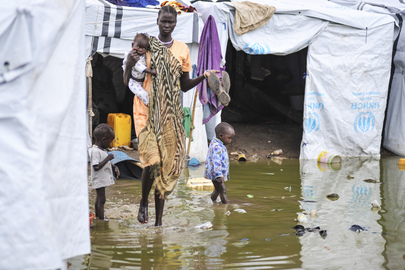Benefits of Space: Disaster Management

A disaster is a serious disruption to the functioning of a community or society. Disasters cause human, material, economic and environmental losses that exceed a community's ability to cope using its own resources. In the past 25 years there has been an increase in the frequency, intensity and unpredictability of disasters, such as earthquakes, hurricanes, floods, landslides and wildfires. Disaster management aims to lessen the impacts of disasters, minimising losses of life and property.

Space-based technologies can contribute to all phases of the disaster management cycle, including prevention, preparedness, early warning, response and reconstruction. Before a disaster takes place, remotely sensed data provides information for systems and models which can predict disasters and provide early warnings. Satellites are also reliable and rapid communication, observation and positioning tools, which become particularly vital to relief and recovery operations when ground based infrastructure is damaged.
For more information see also:
UN-SPIDER
UN-Space Open Informal Session 2013: Space and Disaster Risk Reduction
Office for the Coordination of Humanitarian Affairs
United Nations Office for Disaster Risk Reduction
World Conference on Disaster Risk Reduction
See below for recent documents relating to Disaster Management. For more documents, search the Documents Database.